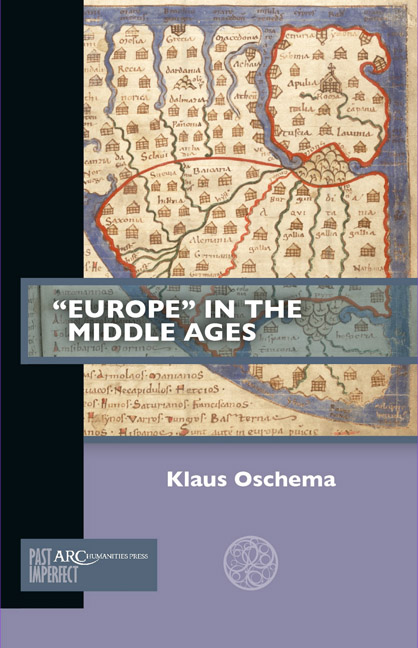Book contents
- Frontmatter
- Contents
- List of Illustrations
- Preface and Acknowledgements
- Chapter 1 Why Europe? A Concept Crossing History and Politics
- Chapter 2 Foundations in Antiquity
- Chapter 3 Moments of Transformation— Europe in the Early Middle Ages
- Chapter 4 Europe, Christianity, or Something Completely Different? Impressions from the Central Middle Ages
- Chapter 5 Our Last Hope? Entangling Europe and Christianity in the Late Middle Ages
- Chapter 6 Perspectives from Outside? Byzantium and the Arabic World
- Conclusion No Roadmap for Europe— History, Politics, and the Way to Global History
- Further Reading
Chapter 2 - Foundations in Antiquity
Published online by Cambridge University Press: 13 February 2024
- Frontmatter
- Contents
- List of Illustrations
- Preface and Acknowledgements
- Chapter 1 Why Europe? A Concept Crossing History and Politics
- Chapter 2 Foundations in Antiquity
- Chapter 3 Moments of Transformation— Europe in the Early Middle Ages
- Chapter 4 Europe, Christianity, or Something Completely Different? Impressions from the Central Middle Ages
- Chapter 5 Our Last Hope? Entangling Europe and Christianity in the Late Middle Ages
- Chapter 6 Perspectives from Outside? Byzantium and the Arabic World
- Conclusion No Roadmap for Europe— History, Politics, and the Way to Global History
- Further Reading
Summary
As is often the case with topics that pertain to a “history of ideas” of the Middle Ages, an analysis of the notion of Europe in this period is not possible without considering the foundations in Antiquity. In the case of Europe this begins with the word itself, whose origins are still not entirely clear. Some research-ers propose a (reconstructed) Phoenician root ‘rb, related to the Hebrew ‘ereb and referring to the “evening.” Others prefer a genuinely Greek etymology, based on eurý- (broad) or eûros (breadth), which coincides with interpretations by antique authors. Equally, a connection with eurós (mouldiness, decay) might be possible, though it seems rather unlikely.
Medieval authors, who were often fascinated by the origins of words and their etymology which they took to represent “real” meaning, hardly ever commented on Europe from this perspective. They mostly limited their reflections to the more factual observation that Europe was the third part of the world and received its name from the princess Europa—a tradition that is already attested to in Roman sources: Europam tertiam orbis partem ab Europa, Agenoris filia, certum est appellari (Europe, the third part of the world, is certainly named after Europa, the daughter of Agenor: Sextus Pompeius Festus, second century CE; BE 83). Only a few medieval texts commented on the Greek origin, such as, for example, one anonymous glossator who commented on Orosius's work and explained, at some point between the seventh and the ninth century CE: Eurupa grece tellus (Europe means “land” in Greek) (BE 84). It is only at the beginning of the fourteenth century that we find more elaborate etymological explanations: Referring to the combination of eu and ripa, for example, the author of an Ovide moralisé stated that “Europe means good shore,” and Bernhard of Kremsmünster proposed an analogous explanation at roughly the same time (BE 85).
- Type
- Chapter
- Information
- “Europe" in the Middle Ages , pp. 15 - 22Publisher: Amsterdam University PressPrint publication year: 2023



